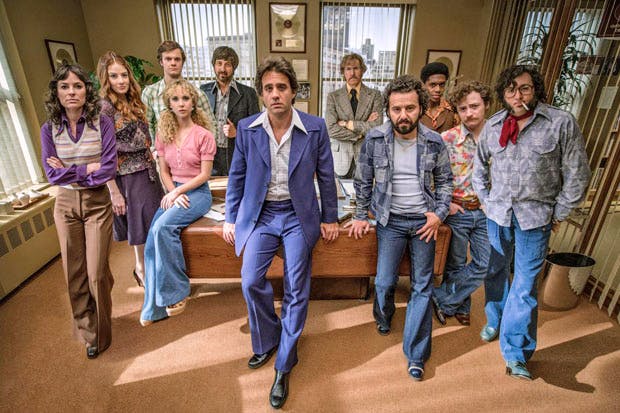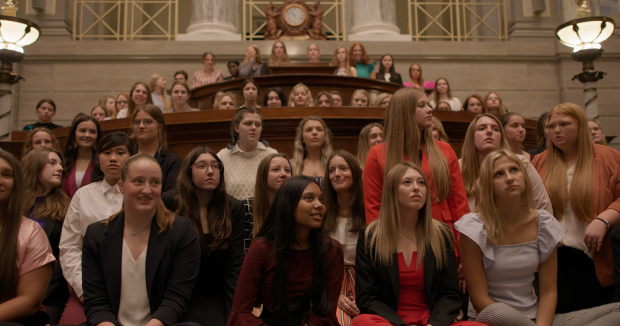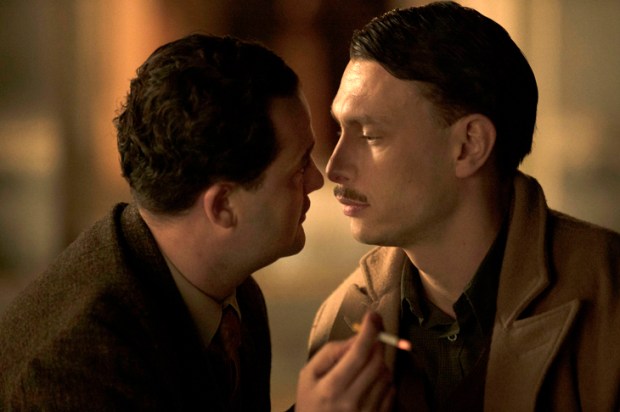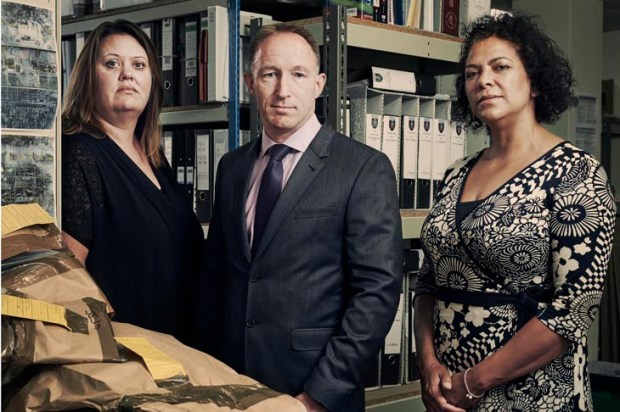Vinyl (Sky Atlantic) — the much-anticipated series, co-produced by Martin Scorsese and Mick Jagger, about the 1970s New York record industry — began on Monday with a two-hour episode directed by Scorsese himself. The result was, as you’d expect, an exhilarating watch. So why did it also create an undeniable feeling of slight disappointment?
One reason, I suppose, could just be that modern TV viewers are spoiled rotten. So many American dramas since The Sopranos have shown such a miraculous mixture of breadth and depth that the problem is no longer believing how ambitious television can be, but simply keeping up with them all. (More bloody golden eggs? Why can’t these people leave us alone to read a book?)
Another reason, mind you, might well be that everything else about Vinyl is pretty much as you’d expect too. In fact, if you’d gone for a drinking game on Monday where you had to glug a shot every time you saw a familiar Scorsese trope, you’d have ended up giving Seventies hedonism a run for its money.
The programme began with the caption ‘New York City 1973’ (glug) and an Italian-American in an extravagantly lapelled jacket and a sleazy part of town scoring some cocaine (glug). He was, he told the dealer, ‘a record man — at least till now’, before heading to a nearby club where the New York Dolls apparently rekindled his love of rock’n’roll. Certainly, he responded like the coked-up equivalent of those old blokes in suits who couldn’t help tapping their toes in Cliff Richard movies.
We then flashed back five days, to when our man was still in good enough shape to deliver a voiceover introducing himself and the other central characters (glug — I’ll stop that now, but you get the idea). He was, we learned, Richie Finestra, owner of American Century records, who attributed his past success to that always-useful metallic combination of ‘a golden ear, a silver tongue and a pair of brass balls’. Now, though, American Century was in trouble, and hoping to be bought by Polygram. ‘But let me shut up,’ Richie’s voiceover concluded, ‘put the record on, drop the needle and crank up the fucking volume.’
And this, of course, is essentially what the episode did from then on. (It’s Marty’s way.) Richie’s desperation to sign Led Zeppelin allowed for a particularly enjoyable shouty performance from Ian Hart as their manager Peter Grant. More unexpectedly, Richie also had trouble with Donny Osmond, whose failure to show up at a dinner for Midwest radio advertisers meant that the influential radio figure Buck Rogers was boycotting American Century records. At first, Buck seemed mollified by a straightforward orgy and bag of cocaine. Two days later, however, he’d snorted so much that, after a fight with Richie and another American Century man, he ended up taking another traditional Scorsese role: the corpse in the boot of a car.
Yet, not even Scorsese at full-throttle was quite loud enough to drown out a sense that underneath all the ferocity were some stories so old-fashioned as to verge on the corny. At one point, a young female American Century employee told a British punk singer (a bit ahead of his time in 1973) that he needed a persona. ‘But I don’t give a fuck about anything,’ he pointed out. ‘That’s it! That’s your persona!’ she declared triumphantly — rather as those Cliff Richard blokes might once have said, ‘Congratulations, son, you’ve just recorded your first hit!’
Much stronger was the harrowing tale in flashback of how Richie, then working at a Mafia-run label, had betrayed the promising young blues singer Lester Grimes. Having forced Lester to make novelty hits, Richie eventually abandoned him to the mob, whose response to Lester’s request for better songs was to beat him across the windpipe.
And yet, while we were clearly intended to be horrified by this, Vinyl also demonstrates Scorsese’s customary ambivalence about the old-school macho ways of doing things. Casino, you may remember, ended with a lament for Las Vegas’s decline into a family-friendly Disneyland, instead of a place where disputes were solved by putting people’s heads in vices. And here, too, there’s an unmistakable — and, let’s face it, infectious — sense of something between excitement and admiration at all that Seventies excess.
Indeed, if there is an author’s message at this stage, it’s not unlike Orson Welles’s cuckoo-clock speech in The Third Man. New York in the 1970s had ten years of decay, squalor and muggings and it produced hip-hop, disco and punk. Now that it’s clean and shiny, nothing similar is happening any more. For all of Monday’s occasional dodgy moments and less occasional reliance on old habits, it says something about the power of Scorsese’s film-making that he can still make this feel like a real loss.
Got something to add? Join the discussion and comment below.
Get 10 issues for just $10
Subscribe to The Spectator Australia today for the next 10 magazine issues, plus full online access, for just $10.














Comments
Don't miss out
Join the conversation with other Spectator Australia readers. Subscribe to leave a comment.
SUBSCRIBEAlready a subscriber? Log in